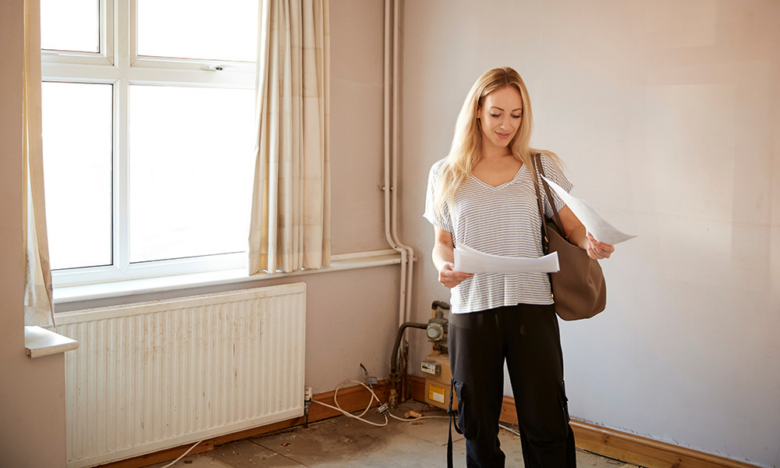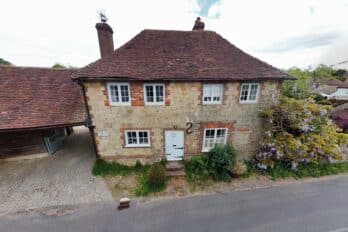
The True Costs of Buying a House
Before you start house hunting, you’ll most likely analyse your finances to determine how much you can afford to spend on your new home. However, what can be a surprise is all the additional fees, taxes and hidden costs that must be covered when making a purchase. Combined, these can add up to thousands of pounds. So, what is the actual cost of buying a house?
Costs When You’re Buying a New House
1. Stamp Duty
One of the highest costs to factor into a purchase is Stamp Duty Land Tax (SDLT). In England, you’ll be liable for SDLT on properties over £250,000, and the rate you’ll pay is determined by how much you paid for the property. So, if the price is between £250,001 and £925,000, the SDLT rate is 5%. It rises to 10% for values between £925,001 and £1.5 million and 12% for any amount above that. You’ll usually need to add 3% to those values if you own another property.
So, if you’re buying a home at the UK average price of £288,000, you can expect to pay £1,900 in stamp duty. If you pay the London average of £553,000, this will rise to £15,150.
If you’re a first-time buyer, the rates differ, and you can spend up to £425,000 without paying stamp duty. You then pay 5% between £425,001 and £625,000. You can’t claim the relief if the property is over £625,000.
You can work out how much stamp duty you’ll have to pay using the government’s SDLT calculator.
2. The Property Deposit
Before you offer on a property, you will also have to make sure you have enough of a deposit saved up. Most mortgage lenders will require you to put forward at least 10% of the property’s purchase price, although some will accept 5%. Last year, the UK government extended its mortgage guarantee scheme, offering lenders the financial guarantees they need to provide mortgages covering 95% of the purchase price until the end of December. The scheme is open to first-time buyers and current homeowners buying properties worth up to £600,000. It should be noted, however, that the more you can save towards a deposit, the more choice you’ll have when it comes to mortgage lenders and the more chance you’ll have of securing an attractive interest rate. Twenty per cent is often cited as the deposit figure to aim for; however, this equals a whopping £57,600 for a £288,000 property and more than £110,000 for an average-priced London home.
3. Mortgage Arrangement Fee
While you’re saving enough deposit money to be able to secure a mortgage, it’s also important to remember that there will be additional fees to factor in here. One of these will be the arrangement fee charged by your lender. On average, you’ll be looking at around £1,000 for this, but rates can vary. You’ll have the option of paying this upfront or adding it to your mortgage, but be aware that if you do the latter, you will pay interest.
4. Mortgage Valuation Fees
Once you’ve found a property, most lenders will send a valuer to assess it and check it’s worth what you’ve offered to pay. Some lenders will charge you for this, so ask the question when arranging your mortgage. The fee will depend on the value of the property you’re buying, and it can vary by lender but factor in at least a few hundred pounds.
5. Survey Fee
While a valuation is for the benefit of the lender and ensures that if you default on your mortgage payments, they will be able to cover their costs by selling the property, a survey is purely for the benefit of the buyer as it gives you all the information you need about the property, its condition, any areas of concern and much more. There are a few survey options depending on the property’s age and condition. In almost all cases, a Building Survey will be the sensible choice. Also known as a Full Structural Survey, this in-depth and comprehensive report provides a detailed picture of the property’s construction and condition. It will highlight significant issues, wear and tear defects, and any areas of poor condition and explain the implications of these faults. It will also examine structural integrity, property build and construction materials in detail, highlight any repairs that have already been made or works that have been carried out, and share future maintenance issues.
If the property you’re buying is built after 1990 and appears to be in good condition, you may consider a Level 2 HomeBuyer Survey, but be aware that even immaculate homes can hide worrying problems, so a building survey could well save you money in the long run. In terms of costs, expect to pay up to £1,000 for a Building Survey and from £750 for a HomeBuyer Survey.
6. Legal Costs
As well as finding a surveyor, you’ll also need to hire a solicitor (also called a conveyancer) to ensure all the legal work with buying a house is completed correctly. This will include carrying out searches – including environmental searches to check for risk of flood or subsidence, and planning searches to identify any existing planning consents or planning applications within a 250-metre radius of the property – and transferring ownership of the property. You’ll be billed as costs come up, but final expenditure will likely be in the region of £1,500-£3,000.
The ‘hidden’ Costs of Buying a House
This may feel like more than enough costs to cover, but unfortunately, many ‘hidden’ costs are also associated with buying a house. For example, you’ll probably need help moving your belongings into your new home, so you should budget for removal costs. How much you’ll need to spend will vary depending on how far you’re moving and how much you have to take, but it could be £1,500 or more to move the belongings from a four-bedroom property. It’ll be significantly more if you opt for professional packing. If there is a delay between moving out of your old house and into your new one, you may also need to pay storage costs.
You should also ensure your belongings are insured, so you’ll need to have contents insurance in place, and you’ll have to have a building insurance policy confirmed when you complete. There are many options here, so shop around for the best price, but make sure you have an adequate level of cover for both.
If you opt for a building survey, you’ll have an idea of any projects that need doing sooner rather than later, along with a view of expected costs, so these can be added to your budget. You may also want to redecorate and/or buy new furnishings to make your new home fit your style. This can be done on a budget and over time, but it’s worth putting some money aside if you can.
You’ll also want to make sure you don’t miss any important posts, so consider paying to redirect your mail – six months costs £33.99.
Finally, be aware that your first mortgage payment may be slightly higher as you’ll have to pay interest from when the lender released the funds.
Novello offers timely, accurate, cost-effective building surveys by expert, impartial surveyors. To find out more, contact us or arrange a free quotation now.

